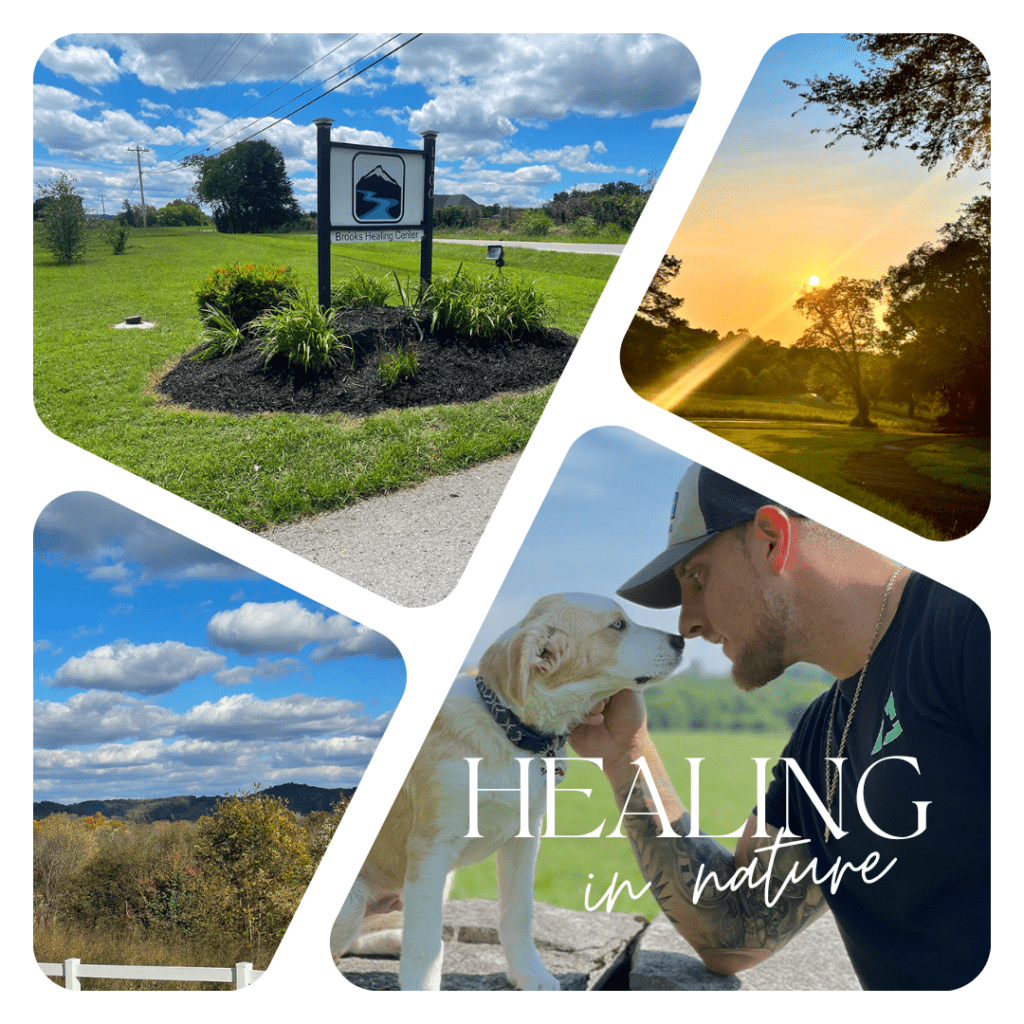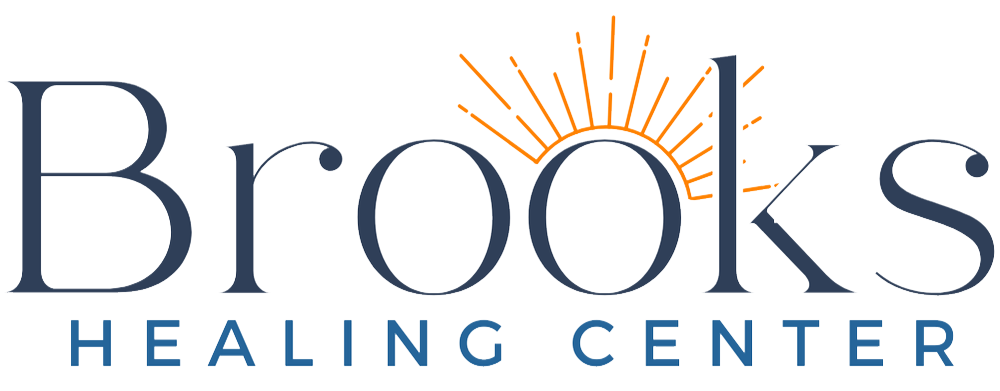Home / Modalities / Trauma-Informed Therapy
Trauma-informed therapy focuses on understanding a patient’s history of trauma and how it’s impacting their behavioral health. This form of therapy can help patients if they are unable to cope with the trauma they’ve experienced or if it’s affecting their ability to function.
Call Admissions 24/7/365
Trauma is an emotional response to an event or experience that someone found distressing or disturbing. One comprehensive study showed that 70% of adults experienced some type of trauma, and over 30% experienced four or more different traumatic events. [1] It’s common for people to respond differently to trauma, and the same kind of trauma can also impact people differently.
Another study shows that high rates of lifetime alcohol or substance abuse are directly connected to greater levels of childhood trauma, physical or sexual trauma, emotional abuse, and post-traumatic stress disorder (PTSD).[2] Trauma is a powerful influence on behavior and functioning.
Other examples of traumatic experiences include:
Each new day is a fresh opportunity to make a life-altering change and improve your quality of life. We want to help you identify the underlying challenges to recovery and better understand yourself so you can finally live the life you were always meant to live. Call today to get started and learn more about BHC.
A traumatic experience can be a one-time event with a huge impact on or a prolonged exposure to harmful people, scenarios, or environments. This experience can have significant adverse effects on your life, both now and in the future. The negative impact of trauma can present in some or all of the following ways:[3]
Feeling intense emotions like anger, sadness, shame, or anxiety and finding it difficult to manage them.
Traumatic stress can activate symptoms similar to mood disorders like depression and anxiety.
Alcohol or drug use is often a form of self-medication for treating trauma symptoms and managing emotions. This attempt is often fleeting and results in little to no true relief from the underlying effects of trauma.
Unbidden, unexpected, and undesirable thoughts that plague the mind can have a lasting negative effect on emotional and mental health.
Insomnia, functional distress, muscle tension, agitation, and chronic illness can all be impacted by traumatic experiences.
Traumatic events can alter how you view the world and how you make decisions based on those perceptions, leading to errors in judgment, excessive guilt, or unrealistic expectations.
Your body protects itself from danger with a natural state of hypervigilance, but trauma can cause this to be a near-chronic state where you startle easily, have a hard time assessing any situation as safe, and may experience muscle tension.
This is the process of disconnecting your thoughts, memories, emotions, and behavior from one another, leading to social withdrawal and isolation.

Trauma therapy helps address the underlying causes of addiction. You will learn how to reduce triggers, build positive coping skills, regulate emotions, prevent relapse, break harmful patterns, build resilience, and improve overall well-being.[4] The self-empowerment that is associated with overcoming trauma can also positively influence substance use disorder challenges.
When someone has experienced trauma in their life, whether it’s recent or from several years ago, it may be a contributing factor to their addiction(s). That’s when trauma-informed therapy treatment can be the solution you need to do something different and build a positive, healthy life.
Trauma-informed therapy focuses on understanding a patient’s history of trauma and how it’s impacting their behavioral health. This form of therapy can help patients if they are unable to cope with the trauma they’ve experienced or if it’s affecting their ability to function.
Trauma-informed therapy can also address issues of guilt and shame that trauma survivors often carry. Tyler Bowman, Founder and CEO of Brooks Healing Center, understands the role trauma can play in addiction:
“I had a lot of shame and guilt that were underlying from my childhood that I never really dealt with,” Bowman says. “I want to make sure everyone gets the treatment they need, and they’re able to address these issues that have been chasing them for so long and help guide them through that process.”
Some techniques used in trauma-informed therapy include:
The seven domains of trauma-informed therapy are:
Our trauma and addiction therapists work with our patients to create an emotionally and psychologically safe environment. Patients learn how to regulate their emotions before exploring and healing from past traumas.

When patients are struggling with their emotions after experiencing a trauma or after years of trauma occurring to them, they may turn to alcohol or drug abuse as a form of self-medicating to avoid dealing with their pain. This can lead to a cycle of addiction as patients have to repeatedly use drugs and alcohol to continue to feel free from their emotions.
Addiction trauma therapy will help patients identify their trauma triggers and provide them with the tools and resources to overcome them. It can also help them deal with other emotions that commonly occur with trauma, such as anger, anxiety, and depression.
Our knowledgeable staff at Brooks Healing Center will help you overcome traumatic experiences with a trauma-informed approach to recovery that is tailored to your needs and a good fit for you or your loved one. Our treatment center, located in the foothills of Central Tennessee, provides the perfect setting to heal from past traumas so you can focus on your addiction recovery journey.
Eye movement desensitization and reprocessing (EMDR), Brainspotting Therapy, and Cognitive Behavioral Therapy (CBT) are also beneficial for addressing dual diagnosis concerns like trauma and addiction.
Absolutely! At Brooks Healing Center, our Detox and Residential treatment programs offer both individual and group therapy sessions with a trauma-informed approach to healing and recovery.
The foundation of the trauma-informed treatment process is based on a practical framework called the 4 Cs, Calm, Contain, Care, and Cope.[5] These 4 Cs offer an easily applicable pathway to put trauma-informed treatment approaches into daily practice.
[1]Benjet, C., Bromet, E., Karam, E. G., Kessler, R. C., McLaughlin, K. A., Ruscio, A. M., Shahly, V., Stein, D. J., Petukhova, M., Hill, E., Alonso, J., Atwoli, L., Bunting, B., Bruffaerts, R., Caldas-de-Almeida, J. M., de Girolamo, G., Florescu, S., Gureje, O., Huang, Y., … Koenen, K. C. (2016, January). The epidemiology of traumatic event exposure worldwide: Results from the World Mental Health Survey Consortium. Psychological medicine. https://www.ncbi.nlm.nih.gov/pmc/articles/PMC4869975/
[2]Khoury, L., Tang, Y. L., Bradley, B., Cubells, J. F., & Ressler, K. J. (2010a, December). Substance use, childhood traumatic experience, and posttraumatic stress disorder in an urban civilian population. Depression and anxiety. https://www.ncbi.nlm.nih.gov/pmc/articles/PMC3051362/
[3][4]Center for Substance Abuse Treatment (US). (1970, January 1). Understanding the impact of trauma. Trauma-Informed Care in Behavioral Health Services. https://www.ncbi.nlm.nih.gov/books/NBK207191/
[5](PDF) trauma and trauma-informed care. (n.d.-c). https://www.researchgate.net/publication/332392165_Trauma_and_Trauma-Informed_Care
